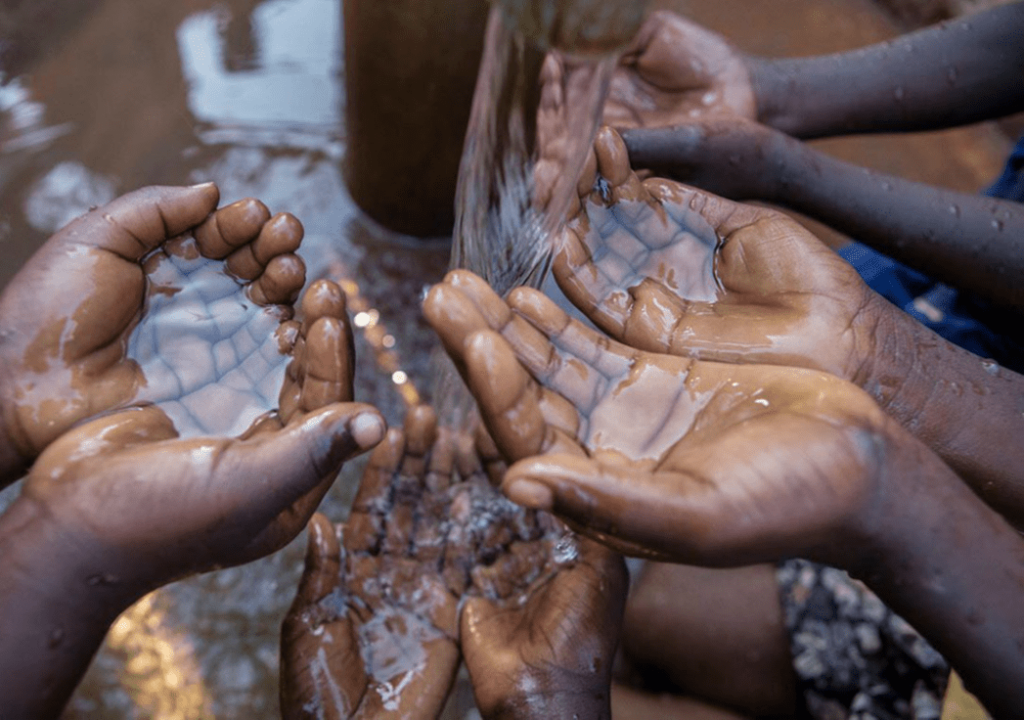Africa has the resources required to improve peoples’ lives, but any future prosperity will be unimaginable without constant access to clean water. Sivan Ya’ari, Founder & CEO of Innovation: Africa, discusses the importance of water in the changing climate and how a water-energy nexus through solar pumping systems can accelerate access to clean water, as well as reliable energy.
Today, a change in climate is primarily felt through a change in water. As the earth gets hotter, hungrier, and more crowded, the collective demand for water has reached a crisis point. Unicef predicts that by 2040, if drastic measures aren’t taken, almost 1 in 4 children will live in areas of extremely high water stress. As the numbers currently stand, a staggering 784 million people live without basic access to clean water, roughly 1 in 10 people on earth.
Sub-Saharan Africa in particular, is experiencing the slowest rate of progress toward water security in the world. Aside from the detrimental impact on health this lack of water carries, it is also a crucial input for agricultural production and food security. Agriculture is at the heart of Africa’s economy and has an extensive social footprint. It accounts for 14% of the total GDP in sub-Saharan Africa, as well as the majority of employment for the continent’s population.
As governments feel the pressure to ramp up their climate change strategies, renewable energy should be our immediate answer to Africa’s water crisis and it is in the form of solar power.
It takes energy to generate water. It takes water to generate energy. The water-energy nexus is the virtually inextricable link between the two. The complimentary relationship between these two elements should mean that the issues most African countries face in lacking one or the other should not be the reality in today’s world.
The nexus approach ensures essential efforts are made to facilitate the creation of an enabling environment for establishing a reliable supply of power and water, which will foster sustainable development, industrialisation, poverty reduction, economic growth, and improved quality of life for Africans. In terms of farming, when local grids are unreliable or in some cases non-existent, solar-powered and efficient drip-irrigation, for example, is increasing farm-level incomes by five to 10 times, improving yields by up to 300% and reducing water usage by up to 90%. This has incredible economic impact for communities relying on farming to keep themselves sustained and bring in life-changing revenue.
Solar powered water systems offer a cost-effective and sustainable way for communities to access safe and clean water which is becoming ever more critical to rural African communities. Clean water can exponentially limit the transmission of diseases such as cholera, diarrhoea, dysentery, hepatitis A, typhoid and polio. With access to clean water, communities are healthier, women and children are freed of the burden of collecting water and now can attend school and/or establish income-generating businesses such as farming, brickmaking and much more.
Innovation Africa taps directly into the water-energy nexus and its potential benefit to millions of people by providing clean water and a constant supply of electricity to people who are underserviced with these basic needs in numerous countries in Africa. We are committed to the development of the continent and plan to complete more than 2,000 water and solar energy installations by 2026, which will impact 10-million people’s lives.
“At Innovation: Africa we have seen first-hand the impact that solar water pumping systems and access to clean water can have. Providing communities with reliable access to clean water changes everything, allowing them to lead healthier and more secure lives. The technology exists, the cost is minimal, and the impact is truly transformative. We have seen it across the 500 villages we have already helped. There Is no doubt that capturing energy from the sun to pump clean water Is the only efficient solution to making a real change and to fighting today’s climate change and challenges” explains Ya’ari.
So why, despite having the best solar resource in the world available at a fraction of the cost, are so many African countries continuing to falter? Many have already succeeded in making the necessary advancements to scale up renewables, such as adopting support policies and promoting investment and regional collaboration. But most of the continent is still severely lagging on the renewable energy front. The time is now for African countries to reimagine their energy policies and commit to bringing solar power to rural communities.

